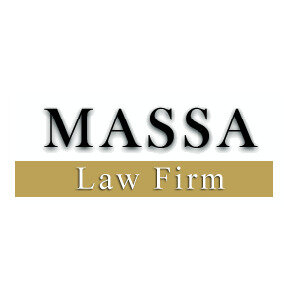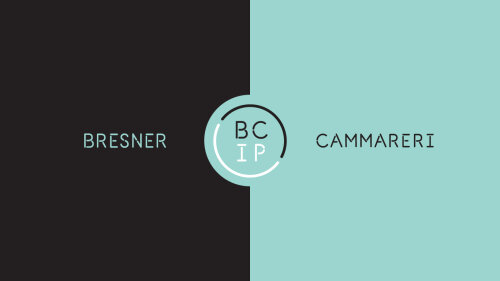Best Advertising and Marketing Lawyers in Italy
Share your needs with us, get contacted by law firms.
Free. Takes 2 min.
Or refine your search by selecting a city:
List of the best lawyers in Italy
About Advertising and Marketing Law in Italy
In Italy, advertising and marketing activities are governed by a combination of national laws, European Union (EU) regulations, and industry self-regulation. The focus is on ensuring fair competition, protecting consumers, and maintaining high levels of ethical conduct in promotional practices. Italian advertising laws are designed to prevent misleading advertisements and to provide clear guidelines for both digital and traditional marketing strategies. The Autorità Garante della Concorrenza e del Mercato (AGCM) is the main regulatory body overseeing marketing practices to ensure that they comply with established legal frameworks.
Why You May Need a Lawyer
There are several situations where you might require legal advice in the field of advertising and marketing in Italy:
- Facing allegations of misleading advertising practices or unfair competition.
- Understanding compliance with Italian and EU advertising standards and regulations.
- Negotiating advertising contracts and partnerships.
- Protecting intellectual property related to advertising content.
- Responding to consumer complaints or participating in investigations by the AGCM or other regulatory bodies.
- Ensuring that digital and online marketing initiatives comply with privacy laws such as GDPR.
Local Laws Overview
Key aspects of local laws relevant to advertising and marketing in Italy include:
- Consumer Code: Governs consumer protection and prohibits misleading advertising practices.
- Legislative Decree No. 145/2007: Specifically addresses unfairness in commercial practices.
- Intellectual Property Code: Provides guidelines on the protection of trademarks and copyrighted marketing content.
- GDPR: Affects how personal data must be handled during marketing activities.
- Online and Digital Advertising Regulations: Recent laws have focused on social media advertising, influencer marketing, and other digital channels.
Frequently Asked Questions
What are the penalties for false advertising in Italy?
Penalties for false advertising can include fines, cease and desist orders, and damages. The AGCM can enforce these penalties if an advertisement is found to be misleading.
Can I use comparative advertising in Italy?
Comparative advertising is allowed provided it meets specific legal criteria, such as being accurate, verifiable, and not misleading.
What should an influencer be aware of when advertising products in Italy?
Influencers must ensure transparency by clearly marking promotional content and adhering to advertising laws, including disclosing sponsorships.
How does GDPR impact marketing activities in Italy?
GDPR impacts how businesses collect, store, and process personal data for marketing purposes. Consent requirements and data protection measures must be complied with.
Do I need to comply with both Italian and EU advertising regulations?
Yes, businesses must ensure compliance with both local Italian laws and broader EU advertising regulations when operating in Italy.
What constitutes misleading advertising under Italian law?
Misleading advertising involves providing false information or omitting essential facts that can deceive consumers regarding products or services.
How are advertising disputes typically resolved in Italy?
Disputes can be resolved through mediation, arbitration, or litigation depending on the nature and severity of the issue.
Are there special rules for children's advertising in Italy?
Yes, the laws are stricter when advertising to children, emphasizing protection against exploitation and ensuring content is suitable for younger audiences.
How can I protect my brand's intellectual property in advertisements?
Using registered trademarks and copyright notices can help protect intellectual property. Legal guidance can aid in navigating the complexities of intellectual property laws.
What role does the AGCM play in advertising regulation?
The AGCM monitors advertising practices, enforces compliance with laws, and can impose sanctions for violations.
Additional Resources
For more detailed information on advertising and marketing laws in Italy, consider consulting the following resources:
- Autorità Garante della Concorrenza e del Mercato (AGCM): The main regulatory body for competition and consumer protection.
- European Advertising Standards Alliance (EASA): Provides guidance on aligning with EU advertising standards.
- Local Chambers of Commerce: Offer resources and guidelines for businesses in advertising industries.
- Italian Data Protection Authority (Garante per la Protezione dei Dati Personali): Offers guidelines on GDPR compliance.
Next Steps
If you need legal assistance in advertising and marketing, consider the following steps:
- Consult with a specialized lawyer who is knowledgeable about both Italian and EU advertising laws.
- Gather documentation related to your advertising practices to provide a comprehensive overview of your situation to your legal counsel.
- Consider potential mediation or arbitration for disputes before pursuing litigation.
- Stay updated with changing laws and regulations to ensure ongoing compliance with advertising standards.
Lawzana helps you find the best lawyers and law firms in Italy through a curated and pre-screened list of qualified legal professionals. Our platform offers rankings and detailed profiles of attorneys and law firms, allowing you to compare based on practice areas, including Advertising and Marketing, experience, and client feedback.
Each profile includes a description of the firm's areas of practice, client reviews, team members and partners, year of establishment, spoken languages, office locations, contact information, social media presence, and any published articles or resources. Most firms on our platform speak English and are experienced in both local and international legal matters.
Get a quote from top-rated law firms in Italy — quickly, securely, and without unnecessary hassle.
Disclaimer:
The information provided on this page is for general informational purposes only and does not constitute legal advice. While we strive to ensure the accuracy and relevance of the content, legal information may change over time, and interpretations of the law can vary. You should always consult with a qualified legal professional for advice specific to your situation.
We disclaim all liability for actions taken or not taken based on the content of this page. If you believe any information is incorrect or outdated, please contact us, and we will review and update it where appropriate.
Browse advertising and marketing law firms by city in Italy
Refine your search by selecting a city.
















